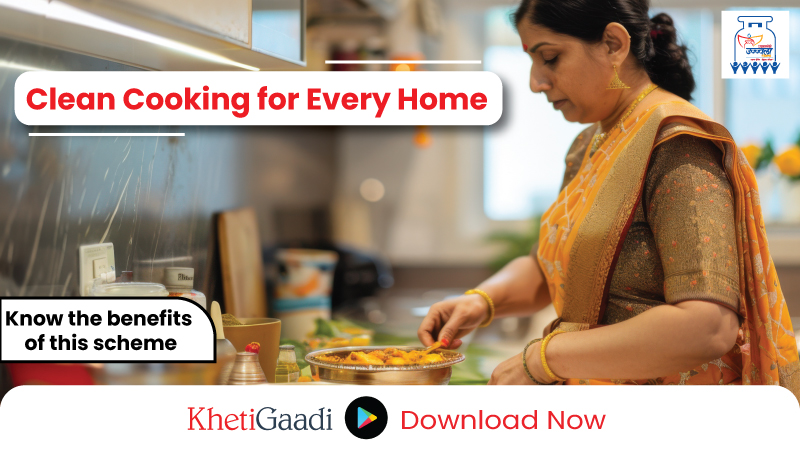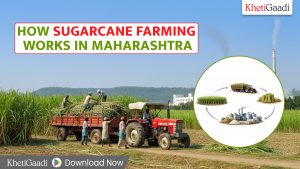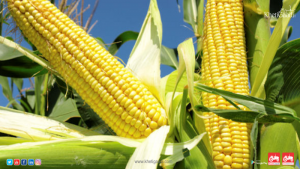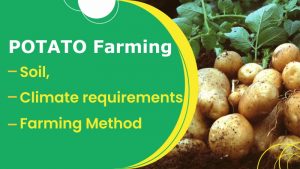Ujjwala Yojana: Sustainable Fuel, Healthier Families
In the heart of India’s development story, the Pradhan Mantri Ujjwala Yojana (PMUY) https://www.pmuy.gov.in/ stands out as a transformative initiative aimed at empowering millions of households with access to clean cooking fuel. Launched by the Government of India in May 2016, this ambitious scheme seeks to improve the lives of women and their families by providing Liquefied Petroleum Gas (LPG) connections to Below Poverty Line (BPL) households. This blog delves into the various aspects of the Ujjwala Yojana, its objectives, impact, challenges, and future prospects, highlighting the pivotal role it plays in enhancing health, gender equality, and environmental sustainability across India.
Scheme at a glance:
| Scheme Name | Pradhan Mantri Ujjawala Yojana |
| Date of Launching | 1st May 2016 |
| Launched By | PM Narendra Modi |
| Official Website | https://www.pmuy.gov.in/ |
| Oil Companies Participants | IOCL, BPCL and HPCL |
| Beneficiaries | Women BPL (All States/UTs) |
| Government Ministry | Ministry of Petroleum and Natural Gas |
The Pradhan Mantri Ujjwala Yojana is an important topic for the UPSC Exams.
The Genesis of PM Ujjwala Yojana
In India, traditional cooking methods using firewood, coal, and dung cakes have been prevalent for centuries, particularly in rural areas. These methods not only contribute to indoor air pollution but also pose significant health risks, especially to women and children who are primarily responsible for cooking. According to the World Health Organization (WHO), indoor air pollution is one of the leading causes of respiratory diseases and premature deaths in India. Recognizing the urgent need to address this issue, the Indian government launched the Pradhan Mantri Ujjwala Yojana to provide clean cooking fuel and reduce dependence on harmful traditional fuels.
Initial thought behind the PM Ujjawala Yojana
The unclean cooking fuel causes deaths which are mostly due to non-communicable diseases including heart disease, stroke, chronic obstructive pulmonary disease, and lung cancer. Providing LPG connections to families below the poverty line ensures universal coverage of cooking gas in the country. The scheme can be a tool for women empowerment in that LPG connections and clean cooking fuel can reduce cooking time and effort, and in most of India, cooking is a responsibility shouldered solely by women. The scheme also employs the rural youth in the supply chain of cooking gas.
A relief package worth Rs 1.70 lakh crore was also announced by the government to tackle the financial difficulties arising from the Covid-19 outbreak under the PM Garib Kalyan Scheme.
To know more about PM Garib Kalyan Yojana, refer to the linked page.
Objectives of PM Ujjwala Yojana
The Ujjwala Yojana aims to achieve several key objectives:
- Promote Women’s Empowerment: By providing LPG connections, the scheme seeks to empower women, reduce their exposure to indoor air pollution, and alleviate the drudgery associated with traditional cooking methods.
- Enhance Health Outcomes: The use of clean cooking fuel significantly reduces indoor air pollution, thereby lowering the incidence of respiratory diseases, eye infections, and other health issues caused by exposure to harmful smoke.
- Environmental Sustainability: By encouraging a shift from traditional fuels to LPG, the scheme contributes to reducing deforestation and carbon emissions, promoting environmental sustainability.
- Poverty Alleviation: By subsidizing LPG connections for BPL households, the scheme helps alleviate the financial burden on economically disadvantaged families.
Key benefits provided by Pradhan Mantri Ujjwala Yojana
- It provides five crore LPG connections to families below the poverty line.
- Financial support of Rs 1600 is provided by the scheme for each LPG connection for BPL households. The administrative cost of this support is borne by the Government. This subsidy is meant for the security fee for the cylinder, pressure regulator, booklet, safety hose, and other fitting charges.
- Under the scheme, oil marketing companies also provide interest-free loans for refilling and purchasing stoves.
- The Pradhan Mantri Ujjwala Yojana covers all the BPL families that come under all forms of distributorship and distributes various sizes of cylinders (14.2 kg, 5 kg, etc.) as per the field situation.
- The benefits of this scheme are also available for the people of all Hilly States including the NE States (who are treated as ‘Priority States’).
- The scheme effectively addresses several difficulties faced by the people in the States of Jammu and Kashmir, Himachal Pradesh, Uttarakhand, Sikkim, Assam, Nagaland, Manipur, Mizoram, Arunachal Pradesh, Meghalaya, and Tripura in accessing LPG for cooking purposes.
Implementation Strategy
The implementation of PMUY involves a well-structured strategy to ensure its success:
- Targeted Beneficiaries: The scheme targets Below Poverty Line (BPL) households, especially those headed by women. Beneficiaries are identified based on data from the Socio-Economic Caste Census (SECC) and other criteria specified by the government.
- Subsidized Connections: Under the scheme, eligible households receive a financial assistance of Rs. 1,600 for each LPG connection. This subsidy covers the cost of the security deposit for the cylinder, pressure regulator, booklet, and safety hose.
- Involvement of Oil Marketing Companies (OMCs): The government collaborates with OMCs to facilitate the distribution of LPG connections and ensure the availability of refills.
- Awareness Campaigns: To maximize the impact of the scheme, awareness campaigns are conducted to educate beneficiaries about the benefits of using LPG and the safe handling of LPG cylinders.
Achievements and Impact
Since its inception, the Pradhan Mantri Ujjwala Yojana has made remarkable progress and achieved significant milestones:
- Rapid Expansion of LPG Connections
As of 31 July 2024, over 10 crore households across the country have been provided with the LPG connections under this scheme. This represents a substantial increase in LPG penetration, particularly in rural areas where traditional cooking methods were prevalent.
- Health and Environmental Benefits
The shift from traditional fuels to LPG has led to significant improvements in health and environmental outcomes:
- Reduced Indoor Air Pollution: The use of LPG as a clean cooking fuel has significantly reduced indoor air pollution, leading to a decline in respiratory diseases and related health issues among women and children.
- Environmental Conservation: The scheme has contributed to reducing deforestation and carbon emissions, aligning with India’s commitment to sustainable development and climate change mitigation.
- Empowerment of Women
The Ujjwala Yojana has played a crucial role in empowering women by reducing their dependency on traditional cooking methods and enhancing their quality of life:
- Time Savings: The use of LPG has reduced the time and effort spent on collecting firewood, allowing women to allocate more time to education, skill development, and income-generating activities.
- Health Benefits: Women are no longer exposed to harmful smoke and emissions from traditional fuels, leading to improved health outcomes and overall well-being.
- Economic Impact
The scheme has had a positive impact on the economy by promoting economic growth and creating employment opportunities:
- Job Creation: The increased demand for LPG has led to the creation of jobs in the distribution and logistics sectors, contributing to economic growth and development.
- Increased Consumer Spending: The availability of subsidized LPG connections has freed up financial resources for BPL households, allowing them to spend more on other essential goods and services.
Challenges and Criticisms
While the Pradhan Mantri Ujjwala Yojana has achieved significant success, it has also faced several challenges and criticisms:
- Affordability of Refills
One of the primary challenges is the affordability of LPG refills for economically disadvantaged households. Despite receiving a subsidized connection, many beneficiaries struggle to afford the cost of subsequent refills, leading to a return to traditional cooking methods.
- Accessibility and Distribution
Ensuring the accessibility and distribution of LPG cylinders in remote and rural areas remains a challenge. Limited infrastructure and logistical constraints can hinder the timely delivery of cylinders to beneficiaries.
- Awareness and Education
While awareness campaigns have been conducted, there is still a need for greater education and outreach to ensure that beneficiaries understand the benefits of using LPG and the safe handling of cylinders.
- Inadequate Targeting
There have been instances of inclusion and exclusion errors in identifying eligible beneficiaries, leading to the provision of LPG connections to households that may not meet the criteria or the exclusion of deserving households.
Future Prospects and Government Initiatives
To address the challenges and ensure the continued success of the Pradhan Mantri Ujjwala Yojana, the government has undertaken several initiatives:
- Enhanced Financial Assistance
To improve affordability, the government has introduced initiatives to provide additional financial assistance for LPG refills, ensuring that beneficiaries can continue to access clean cooking fuel.
- Strengthening Distribution Networks
Efforts are being made to strengthen distribution networks and improve infrastructure in remote areas to ensure the timely delivery of LPG cylinders to beneficiaries.
- Technology and Innovation
The government is leveraging technology and innovation to enhance the efficiency and effectiveness of the scheme. Initiatives such as digital payments and mobile applications are being introduced to streamline the process of booking and delivering LPG refills.
- Expanding Coverage
The government aims to expand the coverage of the Ujjwala Yojana to include more households and ensure that no deserving beneficiary is left behind. Efforts are being made to identify and include eligible households that may have been previously excluded.
Success Stories and Impactful Case Studies
The Pradhan Mantri Ujjwala Yojana has transformed the lives of millions of families across India. Here are a few success stories that highlight the scheme’s impact:
- Empowering Rural Women in Bihar
In the rural district of Bihar, the Ujjwala Yojana has empowered women by providing them with access to clean cooking fuel. Women who previously spent hours collecting firewood now have more time for education and skill development. With improved health and reduced drudgery, they are actively participating in community activities and contributing to the economic development of their villages.
- Reducing Health Risks in Uttar Pradesh
In Uttar Pradesh, where indoor air pollution was a significant health concern, the Ujjwala Yojana has led to a dramatic reduction in respiratory diseases among women and children. Families have reported improved health outcomes and a decline in medical expenses, allowing them to invest in their children’s education and well-being.
- Environmental Conservation in Rajasthan
In the arid region of Rajasthan, the Ujjwala Yojana has contributed to environmental conservation by reducing deforestation. With access to clean cooking fuel, families no longer rely on firewood, helping preserve the region’s fragile ecosystem and promoting sustainable development.
Eligibility criteria to avail connection under Ujjwala 2.0
- Applicant (woman only) must have attained 18 years of age.
- There should not be any other LPG connection from any OMC in the same household.
- Adult woman belonging to any of the following categories –
SC, ST, Pradhan Mantri Awas Yojana (Gramin), Most Backward Classes (MBC), Antyodaya Anna Yojana (AAY), Tea and Ex- Tea Garden tribes, Forest Dwellers, People residing in Islands and River Islands, enlisted under SECC Households (AHL TIN) or any Poor Household as per 14-point declaration.
Documents required
Know Your Customer (KYC)
- Aadhaar Card of applicant as Proof of Identity and Proof of Address in case applicant is residing at the same address as mentioned in Aadhaar (not mandatory for Assam and Meghalaya).
- Ration Card issued by the State from which application is being made/ other State Govt. document certifying family composition/ Self-Declaration as per Annexure I (for migrant applicants)
- Aadhaar of beneficiary and adult family members appearing in document at Sl. 3.
- Bank Account Number and IFSC.
- Supplementary KYC to support status of the family.
Applicants may apply to any distributor of her choice either by submitting application at the distributor or by submitting a request through Online Portal.
A Brighter Future with Ujjwala Yojana
The Pradhan Mantri Ujjwala Yojana is a testament to the power of government initiatives in transforming lives and promoting sustainable development. By providing access to clean cooking fuel, the scheme has improved health outcomes, empowered women, and contributed to environmental conservation. While challenges remain, the government’s commitment to addressing these issues and expanding the scheme’s reach ensures a brighter future for millions of families across India.
As we move forward, it is essential to continue supporting and strengthening the Ujjwala Yojana to achieve its full potential and create a healthier, more equitable, and sustainable India. By empowering women, improving health outcomes, and promoting environmental sustainability, the Ujjwala Yojana is not just a scheme; it is a catalyst for change and a symbol of hope for a better tomorrow.
Key Takeaways:
- Pradhan Mantri Ujjwala Yojana (PMUY): An initiative by the Government of India to provide LPG connections to Below Poverty Line (BPL) households, improving health and empowering women.
- Objectives: Promote women’s empowerment, enhance health outcomes, contribute to environmental sustainability, and alleviate poverty.
- Achievements: Over 10 crore households have received LPG connections, leading to improved health, environmental conservation, and economic empowerment.
- Challenges: Affordability of refills, accessibility and distribution issues, inadequate targeting, and the need for greater awareness and education.
- Government Initiatives: Enhanced financial assistance, strengthening distribution networks, leveraging technology, and expanding coverage to address challenges and ensure continued success.
Relevant Links:
- Pradhan Mantri Ujjwala Yojana – Official Website
- World Health Organization (WHO) on Indoor Air Pollution
- Ministry of Petroleum and Natural Gas, Government of India
- Socio-Economic Caste Census (SECC) Data
To read more such interesting and informative blogs on various topics regularly visit the KhetiGaadi website.




